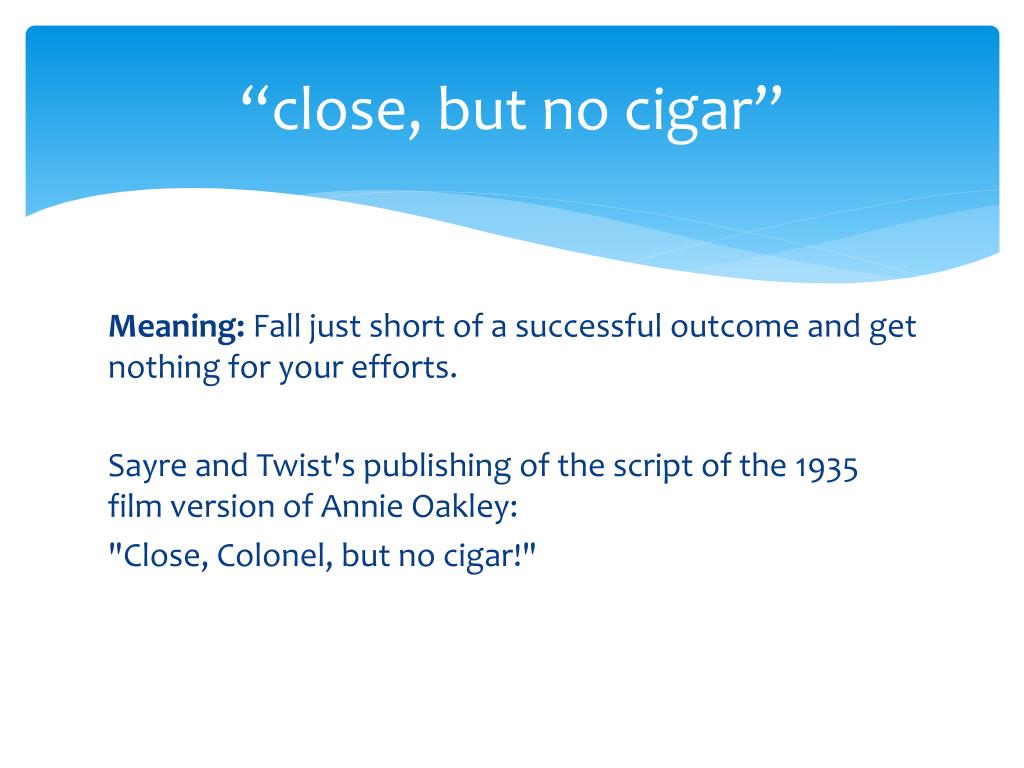Close But No Cigar Meaning

Sorry close but no cigar.
Close but no cigar meaning. The phrase and its variant nice try but no cigar are of us origin and date from the mid 20th century. Close but no cigar phrase. This phrase is believed to come from carnivals or fairs. Coney island offered many such games in the early 1900s.
Ten hits in a row gets you a prize. The idiom attic a collection of hundreds of english idioms each one explained. For them the carnival barker would declare. Close but no cigar definition.
There was even a story in 1949 from lima ohio about a cigar factory nearly burning down which used the phrase close but no cigar. If you ve ever come close to achieving something but didn t quite get to the goal you ve probably heard the saying close but no cigar you probably just accept defeat and move on. Nine for you jack. Origin of close but no cigar.
Some of these games test the player s accuracy while others are based more around strength. What s the origin of the phrase close but no cigar. Used to say that someone almost succeeded but is not completely successful or correct. Definition of close but no cigar in the idioms dictionary.
Definitions by the largest idiom dictionary. A cigar was traditionally one of the rewards at carnivals for winning at games of skill or chance. Close but no cigar definition. Fairground stalls gave out cigars as prizes and this is the most likely source although there s no definitive evidence to prove that.
Very near to success but falling short. Carnivals have many different games that can be played. Most sources believe that this expression developed from a common practice at fairs or circuses. The origin of close but no cigar.
This phrase is often used to describe someone who almost wins a game or who is almost correct. Most people did not win a prize. Said to someone to mean that they have failed in what they were trying to achieve or make. Close but no cigar the lieutenant shouted throughout the 1930s the phrase started appearing in newspapers more widely and by the late 1940s was nearly ubiquitous.
Of an attempt almost but not quite successful. Meaning pronunciation translations and examples.

















